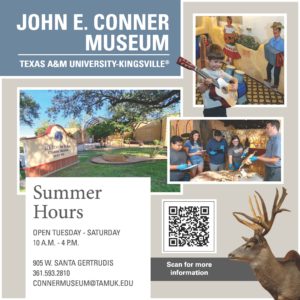Recent events and allegations at Texas A&M University-Kingsville have made race and diversity a topic of discussion on campus.
The university has a rich history of being at the forefront of change and diversity. Javelina football coach Gil Steinke was a pioneer of collegiate sports integration. In the ’60s, Javelina students helped ignite the Chicano movement, advocating for equality amongst whites and Hispanics. TAMUK was also the first university to offer a doctorate in bilingual education.
Now, 60 years later the nation is still demanding a change for better treatment of minorities.
And, that change is being sought on this campus as well with current and former faculty and staff noting disparities across races at the university.
The death of George Floyd in May in police custody sparked a movement and opened conversations about minority treatment across the country.
Floyd was recruited by Javelina Nation to play football from 1995 to 1997. Upon learning about the tragic death of Floyd the campus closed in recognition of his memorial service on June 8. A week after the university announced this, it received reports of racism and offensive messages on social media.
To further escalate the issue, a Snapchat video of a white teen pointing to a group of black individuals playing basketball near the dormitories and calling them racial slurs went viral on Twitter.
“If they act up, we might have to euthanize these [racial slur omitted], just like the cop did that one” is heard during the 30-second video.
Although the white male was not an enrolled student at the university, TAMUK officials quickly addressed the issue in a press release.
“The University is taking appropriate action to inform the individuals that their conduct is not consistent with the values and expectations of our community. Javelina Nation disavows racism and intolerance and is committed to a culture of inclusivity and respect,” according to a statement released June 11.

In response to Floyd’s death, members of Javelina Nation and the Kingsville community gathered and peacefully marched through downtown advocating for Black Lives Matter.
“I don’t think there is a race issue on campus, although I would say that in the past, I did think that there was not enough representation for many of the minorities on campus. However, since the tragic death of George Floyd I have the gotten the opportunity to see the campus unify and come together and show us that they care and stand with us,” Christen Williams, president of Black Student Union, said.
With many social injustices coming to light, former safeties’ coach Alfred Rowe came forward with a 2019 complaint accusing athletic employees of racist acts.
The complaint filed in August 2019 alleged that a male trainer told a Black female trainer to “use a string or rope to hang herself.”
The complaint also included an incident in which graduate assistants gathered off campus to watch Django Unchained and took shots of alcohol every time the N-word was used. “Hard ‘R’ Thursday” was introduced by one of the trainers and was used on and off campus to refer to Black students.
Rowe would like an apology because of how the situation was handled.
TAMUK officials say they take allegations on discrimination very seriously. An investigation occurred and declared Rowe’s allegations were unsubstantial because he wasn’t directly targeted. Former football staff have publicly supported Rowe’s allegations.
Groups on campus have formed in attempt to promote diversity or gain representation at the university.
During the summer, the Hispanic Faculty Council formed with the intention of having a direct voice to the president and provost.
“Initially we started the council to try to get more Hispanic tenured track faculty. That sort of turned into other issues that we know we have… We don’t have a lot of administrators who are Hispanic, we don’t have any curriculum that is being highlighted to do Hispanic work. We have a couple of programs that have not been funded. Those are just some of the problems we have, if we are going to maintain and grow as a university, we need to make sure that our students feel comfortable and at home,” Dr. Alberto Rodriguez, associate professor of history and member of the council, said.
The Hispanic Faculty Council believes the university could be doing more to highlight the work of Hispanics. In August, the university announced the formation of the Climate Diversity and Inclusion Committee. This Committee is dedicated to creating a safe atmosphere in which students, faculty and staff feel valued and respected.
“The TAMUK President’s Council on Climate, Diversity and Inclusion recognizes and appreciates the importance of creating an environment in which all students, faculty, staff and community members feel valued, included and empowered to do their best. We recognize that each person’s unique experience, perspective and viewpoint add value to our campus, our community and beyond. The Council seeks to recommend ideas and strategies that will improve respect, diversity and inclusion at the University while creating a place for civil, safe, and respectful dialogue among groups who share different ideas,” Henry Burgos, co-chair of the Climate Diversity Inclusion Committee, said.
